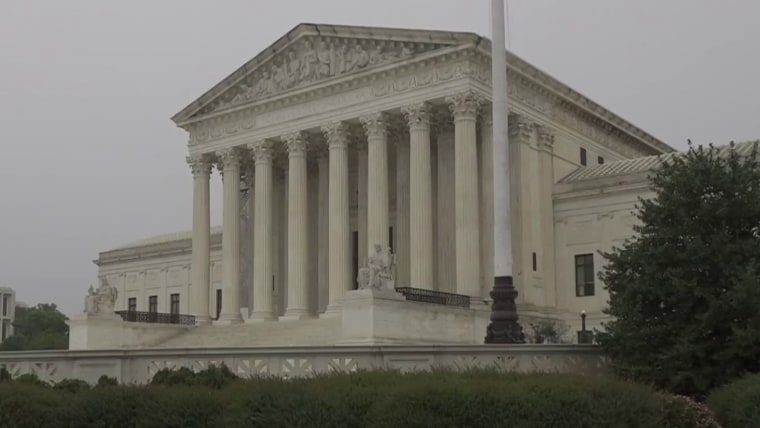You know a ruling is relatively good when the lone dissenter is full-time Supreme Court justice and part-time Wall Street Journal opinion writer Samuel Alito. And so it was on Friday when the majority rejected, over Alito’s lengthy objection, a fringe red-state lawsuit that sought to take over federal immigration policy.
Justice Brett Kavanaugh’s opinion for the court rejected what he termed the “extraordinarily unusual” suit brought by Texas and Louisiana. His writing is a win for President Joe Biden’s policy and, apparently, for common sense. It’s a loss for red states and a rejection of the Donald Trump-appointed judge in the case, Drew Tipton in Texas, as well as the right-wing 5th U.S. Circuit Court of Appeals that refused to block Tipton along the way.
The suit stemmed from Biden’s Department of Homeland Security issuing immigration enforcement guidelines that prioritized the arrest and removal of noncitizens who, for example, are suspected of being terrorists or dangerous criminals. Louisiana and Texas sued, alleging that the guidelines violate federal law and that those states suffer for having to incarcerate or supply social services to noncitizens who aren’t being arrested.
The problem with that argument, Kavanaugh wrote in United States v. Texas, is that the states don’t have legal standing to make it. The Trump appointee wrote:
In sum, the States have brought an extraordinarily unusual lawsuit. They want a federal court to order the Executive Branch to alter its arrest policies so as to make more arrests.
Kavanaugh also noted that the states “cite no precedent for a lawsuit like this.” His opinion was joined by Chief Justice John Roberts and Justices Elena Kagan, Sonia Sotomayor and Ketanji Brown Jackson. Justices Clarence Thomas, Neil Gorsuch and Amy Coney Barrett agreed with the result but for different reasons.
And then there’s the dissent from our favorite Alaska fishing lodge enjoyer, Alito. Replete with retrograde “law and order” framing right off the bat, he began his 29-page offering by complaining about a federal policy “that inflicts substantial harm on the State and its residents by releasing illegal aliens with criminal convictions for serious crimes.” He chafed at the “sweeping Executive Power endorsed by” his colleagues and accused the majority of “shun[ning]” its duty.
Of course, the ruling was an instance of the court doing its duty — or, rather, not overdoing it by embracing a fringe lawsuit that was too much for even this far-right court to stomach.
We’ll see if a majority takes a similarly sane approach in a coming decision on Biden’s student debt relief program, which would likewise scuttle a fringe challenge to an important federal policy.
Subscribe to the Deadline: Legal Blog newsletter for weekly updates on the top legal stories, including news from the Supreme Court, the Donald Trump investigations and more.

